Most school days, 11-year-old Hazra begins class in Chardahi village, in Afghanistan's eastern Jalalabad province, on an empty stomach.
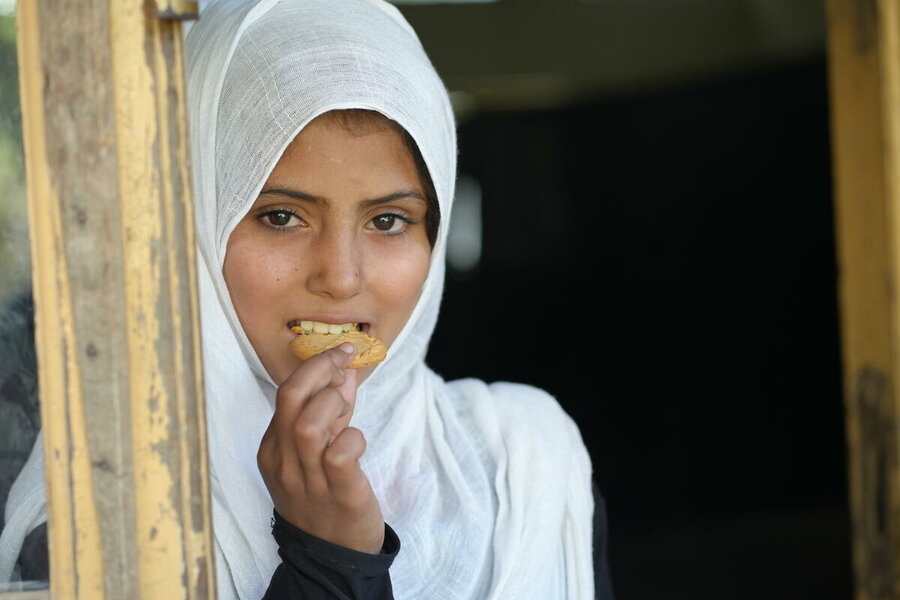
"Sometimes I have tea and some bread for breakfast, but most days I come to school without eating anything," says the sixth-grade schoolgirl, who wears a white headscarf and long dark robe, like her fellow classmates.
"I am hungry," she adds, "and it is difficult for me to concentrate on what the teacher says when I have eaten nothing."
Reprieve comes when teachers distribute a packet of World Food Programme (WFP) High Energy Biscuits to each of the roughly 1,000 students at this all-girl primary school.
One 100-gram roll of cookies packs in 450 calories, along with fat, protein and a raft of important vitamins and minerals that are essential for growing youngsters.
"The cookies are delicious," Hazra says. "Eating them makes me happy and puts me in a good mood. They also give me energy and I participate much more in the lessons."
The biscuits are just part of WFP's school feeding programme, which last year reached more than 900,000 Afghan students countrywide. Along with our broader food and nutritional assistance, the support offers a crucial buffer against soaring hunger, especially during these harsh winter months.
"School feeding is an important part of our activities in the country, where WFP is one of the last remaining barriers between Afghanistan and absolute desperation and hunger," says Hsiao-Wei Lee, WFP Country Director in Afghanistan.
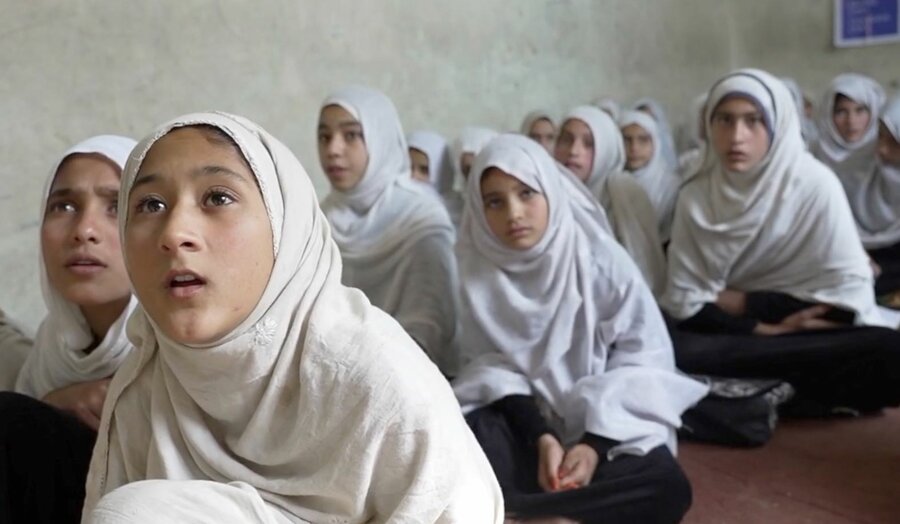
Today, as Afghan girls and women face growing education and work restrictions - and are hardest hit by the country's hunger crisis - reaching students like Hazra is more important than ever. Indeed, nearly half the children WFP reaches with school feeding support are girls.
"A hungry child can't learn well," says Mona Shaikh, WFP's Head of Nutrition in Afghanistan, where millions of children are suffering from wasting and chronic malnutrition. "And because school feeding also enables parents to send their children to school, it offers a lifeline for girls especially to get an education."
Tangible benefits, difficult times
In Batikot district, where Chardahi village is located, the benefits of WFP's school feeding are tangible. One village girls' school has seen its attendance double, to more than 1,000 students, since WFP in 2019 rolled out take-home family rations, as part of the initiative.
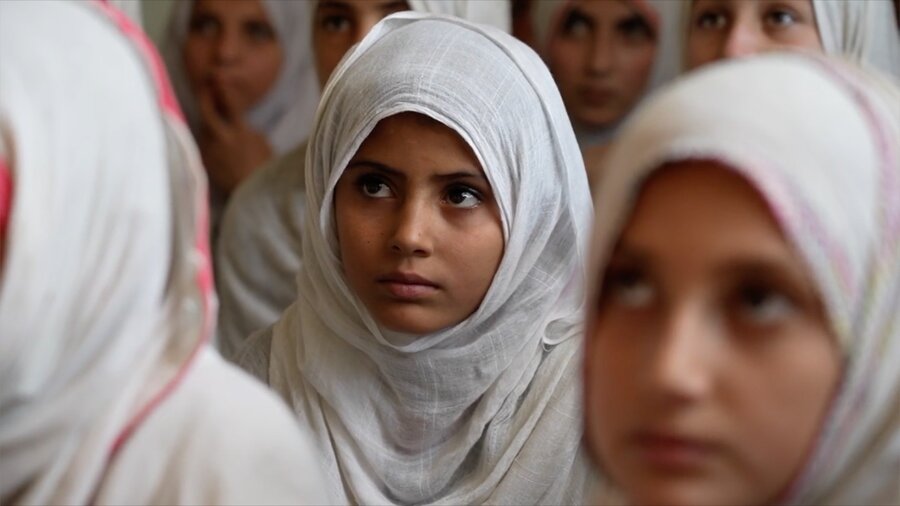
"These rations help a lot to make it attractive for families to send girls to school," says one school director from the district. "It also improves retention rates of the students, who get to stay in school more years."
Launched in Afghanistan more than two decades ago, WFP's school feeding programme - which also includes nutrition snacks made of local ingredients - aims to link food security and better nutrition with education among school-aged children.
Those benefits make a powerful difference in a country battered by four decades of conflict. Nine out of 10 Afghans do not eat enough, and roughly two-thirds of the population, or 28.3 million people, are projected to need humanitarian assistance in 2023 - nearly four million more than last year.
Families' struggles have only deepened following the Taliban's country-wide takeover, in August 2021. A severe economic crisis has engulfed the country, compounded by droughts, floods and climate shocks.
The fallout is felt in places like Chardahi, a rural village of mud-and-wood houses, where most of its 400 families depend on farming or raising livestock to survive.
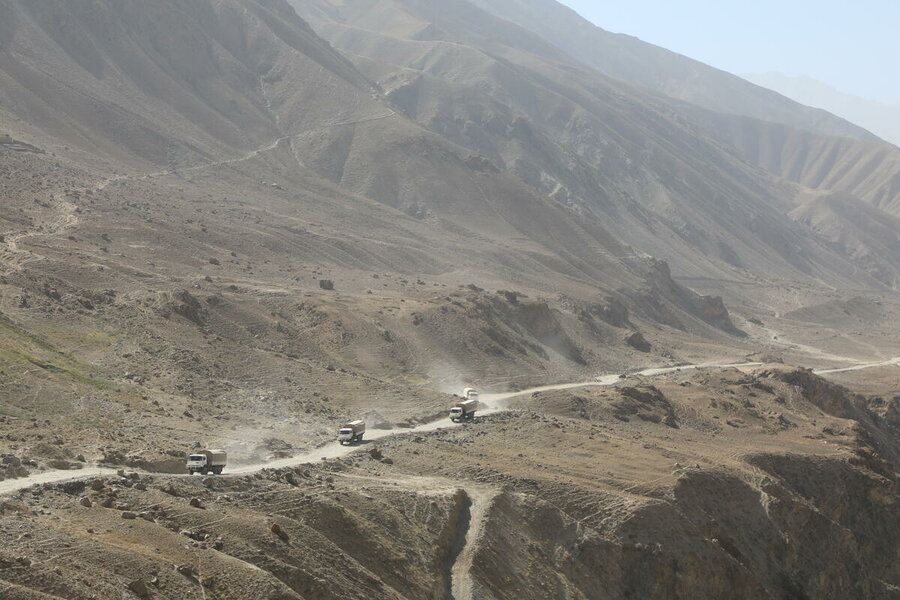
Today, villagers are reeling from three consecutive years of drought. Food security province-wide was already at crisis levels during the last wheat harvest, in October.
"Most families in the district are large and poor," one of the teachers told a visiting WFP team recently. "Families send their children to school so that they get something healthy to eat every day."
Education at a crossroads
Beyond primary school, girls like Hazra face shrinking opportunities. The Taliban have cracked down on women's and girls' rights in all spheres of public life, with education particularly affected. Girls can only attend the first six years of school and, since more than a year, have been barred from secondary school.
In December, the de facto authorities forbade women also from attending university and banned them from working in national and international nongovernmental organizations-with whom United Nations agencies like WFP work closely to support families across the country.
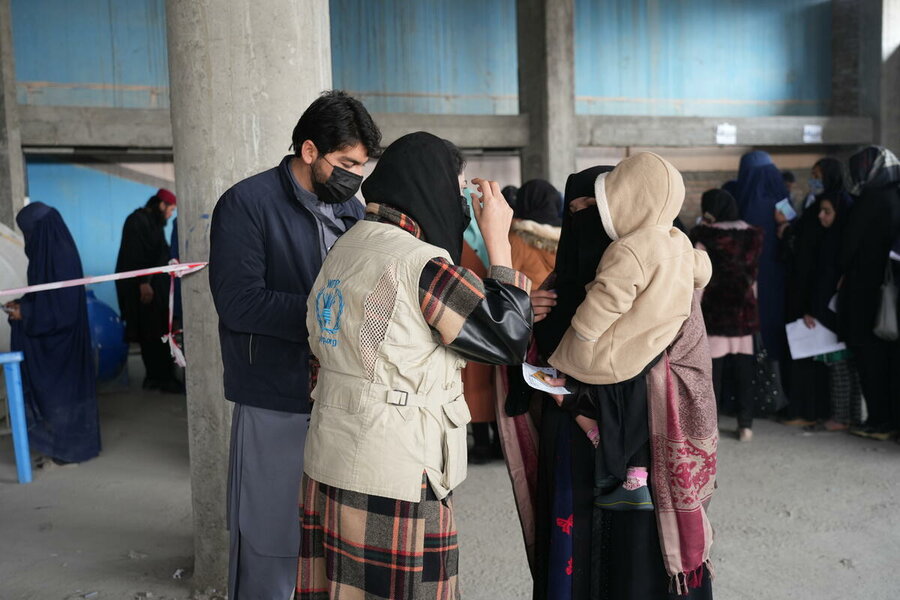
In response, UN agencies, along with other humanitarian groups in Afghanistan, paused some activities, to assess the ban's impact. That included some of WFP's school feeding support-although we continue distributing High-Energy Biscuits in community classes where female teachers are still teaching girls, in areas where children live too far to attend regular public schools.
In a statement, WFP and a number of other humanitarian agencies urged Afghan authorities to reconsider the female aid worker ban, and reaffirmed their commitment to delivering assistance to all those in need.
"No country," the statement added, "can afford to exclude half of its population from contributing to society."
That contribution begins by ensuring girls like Hazra, who wants to become a doctor when she grows up, get the educational and nutritional support they need.
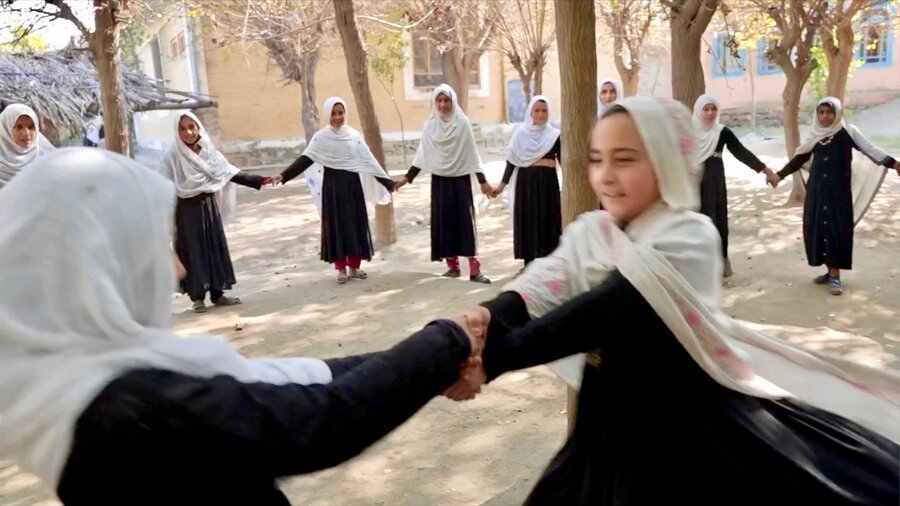
"In fragile countries like Afghanistan, school feeding is not only humanitarian assistance, but also hope for a more peaceful future," says WFP Country Director Lee. "It helps girls and women - and their communities and countries - to move ahead."
WFP's school feeding programme in Afghanistan is supported by contributions from the EU Commission's Directorate-General for International Partnerships, the Government of France and the German Federal Ministry of Economic Cooperation and Development (BMZ) and the Republic of Korea.






